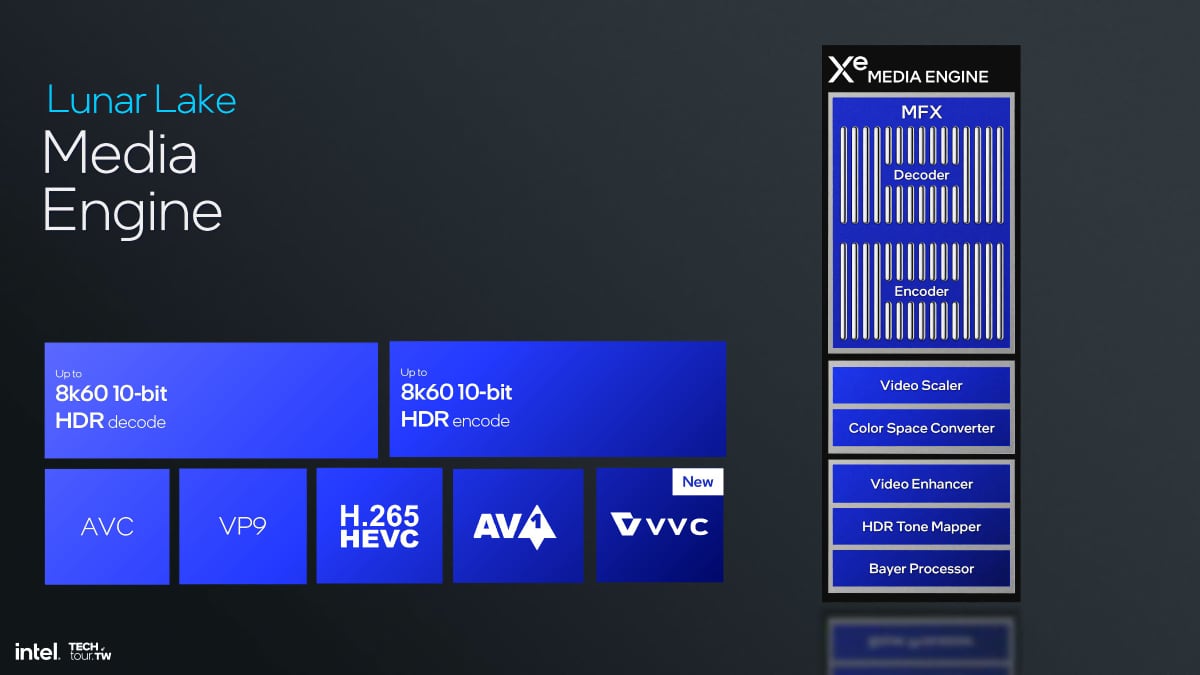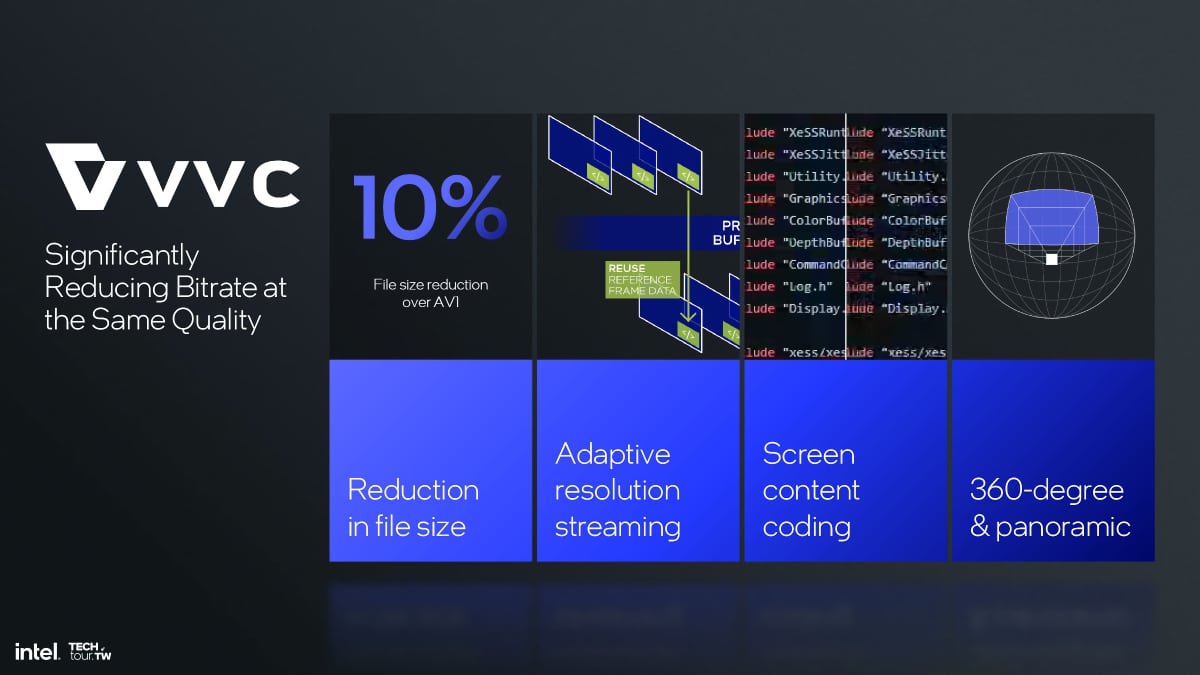The next-generation Versatile Video Coding (VVC) codec, the official successor to HEVC, will arrive first in PCs built on Intel's new processors, starting this month.
Support for the HEVC (H.265) video codec has long been a standard feature of 4K and 8K TVs, but VVC (H.266) has yet to be adopted in TVs – not even 8K models.
Mainstream adoption will instead begin with the launch of "AI PCs" powered by the new Intel Core Ultra processors, built on the Lunar Lake architecture. Intel has announced that Acer, Asus, Dell, HP, Lenovo, LG, MSI and Samsung will start launching these PCs on September 24.
In 2022, Intel also beat AMD and Nvidia in the race to implement support for the AV1 video codec. However, AV1 hardware decoding arrived in 8K TVs two years earlier in 2020, and in 4K TVs the following year.
VVC designed for 4K, 8K and VR
VVC offers more efficient video encoding and is often said to be 30-50% more efficient than HEVC and 10-20% more efficient than AV1 at 4K resolution, though estimates vary depending on various factors.
At 8K resolution, VVC is reported to be 50-60% more efficient than HEVC and 20-30% better than AV1.
Improved video codec efficiency allows for similar video quality at lower bitrates, allowing even users with slow internet speeds to enjoy high quality, or for higher quality at the same bitrates – or something in between.
VVC decoding only
The new Intel processors feature an Xe2 graphics component that can handle video decoding up to 8K60 video. However, the level of VVC support was not detailed beyond it being limited to decoding – no encoding yet.
Additionally, VVC is optimized for 360-degree immersive video for VR.
Mediatek's Pentonic chips, which are powering many 2024 TVs, can already support VVC video decoding, but they require an additional decoder chip that is not yet installed in any TVs.
Also read: MediaTek's new Pentonic 800 chip for TVs supports 4K 165Hz, WiFi 7











